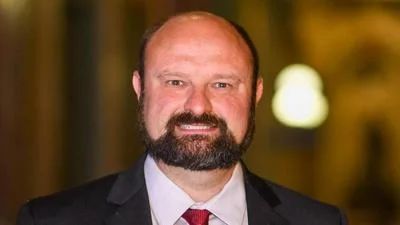Last year alone, 9,000 more residents moved from Illinois to Missouri than moved in the other direction and settled in Illinois.
Newly released U.S. Census Bureau data confirms a long-term trend that has seen a net loss of 73,000 Illinois residents to the Show-Me State over the last decade. the president of the Missouri Chamber of Commerce is convinced the flood of Illinois residents arriving in his state is largely due to his state's resurgent job market.
“It’s all about jobs,” CEO Dan Mehan told the Metro East Sun. “People will go where the opportunities are and here in Missouri our legislators are pushing a pro-growth, pro-jobs agenda that’s making a difference for people,” he added.
Missouri recently became the country's 28th right-to-work state, a status that gives Missouri workers power to choose whether to join a union and pay union dues. Mehan thinks this measure and other reforms can soon make the state a model for the nation.
“There’s a new day in Missouri,” he said. “Our government has dropped party ideology and we’re all just working together to make things better.”
The picture is much different in Illinois where state legislators remain deadlocked over a proposed "grand bargain" to address the state's mounting debt and oppressive workers' compensation rules. The General Assembly has been unable to pass a budget for two consecutive years creating an uncertain business environment for employers and employees alike.
Prairie State residents are taking notice. In 2016, they left at a rate 50 percent higher than the previous year.
The largest metropolitan areas in each state share this trend. Census data reveals Cook County suffered a population decline of 21,324 between July 2015 and June 2016, a drop that leads the region's metropolitan areas and is more than six times greater than the net loss for the St. Louis area.
“It all comes down to leadership,” Mehan said. “In Illinois, it’s the same old, same old going on where the state budget is concerned. Here, we embarked on a long- term plan to fix that and we’ve seen positive growth, while Illinois is growing at a slower rate than any other state in the region."
Illinois Policy Institute ("IPI") Vice President of Policy Michael Lucci stressed that the problem is not just how many are leaving, but who is leaving. According to Lucci, most of those fleeing Illinois are taxpayers, earning more on average than those newly arriving here over the same period. He identified the fastest groups leaving Illinois as millennial workers and students looking for better opportunities.
Lucci does not consider the controversial "grand bargain" a viable solution even if it is passed. He described it as “nothing more than a massive tax hike dressed up with a few reforms.”






 Alerts Sign-up
Alerts Sign-up